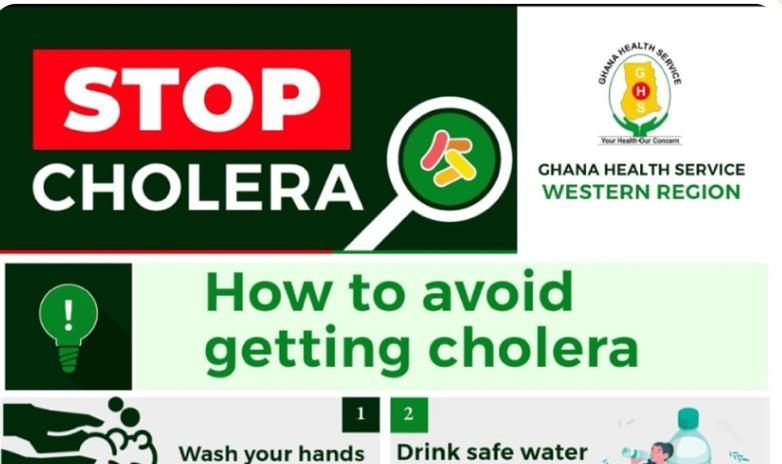By Linda Naa Deide Aryeetey
Accra, May 23, GNA – Dr Dennis Odai Laryea, Deputy Director, Public Health Division, Ghana Health Service (GHS), has urged the public to maintain hygiene and monitor food and water intake as rains and floods increase health risks.
“Whether rain or shine, contracting cholera simply means you have eaten food or drunk water contaminated with faeces,” he said.
Speaking to the Ghana News Agency in Accra, Dr Laryea noted that the cholera outbreak from last year remained active, with sporadic suspected cases still being recorded.
Between October 2024 and May 2025, a total of 612 confirmed cholera cases were reported across five regions.
The Central Region recorded the highest number with 270 cases, followed by Greater Accra with 200, Western Region with 135, Ashanti with five, and Eastern Region with two.
A total of 51 deaths were recorded during the period, though none occurred in May.
Dr Laryea said the number of suspected cases had dropped significantly in recent months.
“Since the beginning of May, the service has recorded six suspected cases of cholera with one confirmed, and no death recorded,” he stated.
He advised the public to wash hands with soap under running water regularly, eat warm food, drink clean water, and use hand sanitiser frequently as preventive measures.
Earlier this year, Ghana commenced its first oral cholera vaccination campaign, targeting 150,634 people in the most affected districts.
The campaign focused on individuals aged two years and above in parts of the Greater Accra, Central, Western, and Eastern regions.
The sub-national campaign in Awutu Senya East exceeded its target of 150,000 people, while the campaign in the Western Region aimed to reach 600,000 residents.
Cholera is an acute diarrhoeal infection caused by consuming food or water contaminated with the bacterium Vibrio cholerae.
According to the World Health Organisation (WHO), cholera is a global public health threat, indicating inequity and a lack of social and economic development.
Access to safe water, basic sanitation, and hygiene is essential to prevent cholera and other waterborne diseases. In 2023, WHO recorded 535,321 cases and 4,007 deaths from 45 countries.
Cholera is often linked to limited access to clean water, poor sanitation facilities, and inadequate hygiene, which may result from conflict, displacement, climate-related events such as floods or drought, and insufficient investment in water and sanitation infrastructure.
Most people infected with cholera experience mild or moderate diarrhoea and can be treated with oral rehydration solution (ORS). However, the disease can progress rapidly, making early treatment critical. Severe cases require intravenous fluids, ORS, and antibiotics.
Effective prevention and control require a combination of enhanced surveillance, improved water and sanitation, risk communication, community engagement, access to treatment, and oral cholera vaccination campaigns.
GNA
Edited by Kenneth Sackey
